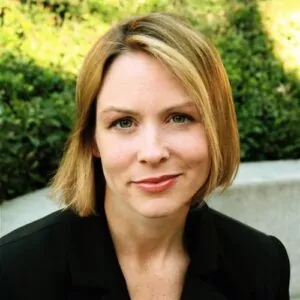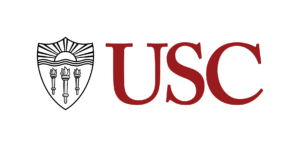From climate change to gun violence, the constant deluge of “bad news” that we consume on a daily basis can make us feel resigned, upset, and hopeless about the world. Although we may want to silence our phones, the media can be a powerful tool for standing up against these pressing issues.
In this course, we will explore a range of media that calls for change and assess various successful strategies and tactics used by movements, organizations, and individuals to change the status quo.
By the end of the course, you’ll gain a better understanding of how social change operates as well as the important role media can play in the process. You’ll also learn how you can use your voice and media presence to address the issues that you and your peers care about.
PROGRAM DATES
June 9, 2025
June 23, 2025
July 7, 2025
July 21, 2025
August 4, 2025
August 18, 2025
September 1, 2025
September 15, 2025
September 29, 2025
October 13, 2025
October 27, 2025
November 10, 2025
November 24, 2025
December 8, 2025
December 22, 2025
FORMAT AND COURSE LENGTH
Combined coursework of recorded lectures, readings, and assignments is approximately 20-25 -hours to be completed at the student’s own pace. Students are expected to complete the course in two to four weeks.
ELIGIBILITY
Students must be at least 14 years old or older and enrolled in a high school or secondary program. International applicants must demonstrate English proficiency.
Recent high school graduates, students taking a gap year or time off from college and are older than 18 can request an exemption to apply by emailing precollegeonline@usc.edu and include a short paragraph (no more than 200 words) stating your interest and how this program will add value to your academic or career plans.
TUITION
$1990 USD
$35 application fee
PROGRAM OVERVIEW
Featured Topics
- Strategies for Social Change
- Visual Culture and Social Change
- Storytelling and Narrative Impact
- Amplifying Your Message
- Becoming an Advocate
Learning Outcomes
Following the completion of the course, students will have a deep understanding of:
- How individuals use social change to challenge the status quo and envision a better future
- How social change is enacted in different contexts, by different constituents, and on different scales — from grassroots movements to advocacy campaigns, from local community work to global calls for change
- How different types of media and storytelling drive social change and make an impact
- How to amplify your voice and harness the power of media to drive change
Format and Course Length
The course consists of recorded lectures, media case studies, and industry connections. Students will explore a range of media that play a role in driving social change around pressing contemporary issues. Each topic provides context for understanding these media examples along with theories and movements of social change to equip and inspire students to become change agents for a better world.
Combined coursework of recorded lectures, readings, and assignments is approximately 20-25 -hours to be completed at the student’s own pace. Students are expected to complete the course in two to four weeks.
FEATURED FACULTY

In this course, you’ll learn from Alison Trope, a clinical professor at the USC Annenberg School for Communication and Journalism and former director of undergraduate studies for the School of Communication. She is the founder and director of Critical Media Project, a media literacy initiative focused on representation and identity (gender, race, class, sexuality, disability, religion, age). Critical Media Project is used in Los Angeles Unified School District and other secondary and higher education institutions across the country.
Trope is the author of Stardust Monuments: The Saving and Selling of Hollywood (Dartmouth, 2012), which explores the enduring efforts to memorialize and canonize the history and meaning Hollywood takes on in our everyday lives. She has also written about the history and current state of Hollywood philanthropy and activism.
Trope received her PhD in Critical Studies from the School of Cinema-Television at the University of Southern California in 1999, and has since taught a range of courses in the Annenberg School for Communication in media and digital literacy, popular culture, visual culture, fashion, gender, and social change.
APPLICATION REQUIREMENTS
Admission decisions are made on a rolling basis. Applicants who submit a completed application can expect an admission decision within 3 – 5 business days.
- Include basic contact information from you and your parent(s) or guardian.
- Tell us why you want to take the course and a little about yourself through a short-answer essay.
- Share a piece of writing, video or social media content that reveals something about yourself (optional).
- Submit the $35 application fee.
- Students must be at least 14 years old or older and enrolled in a high school or secondary program.
INTERNATIONAL APPLICANTS
In addition to the requirements listed above, international applicants are expected to be proficient in English. International students who successfully complete an online course will receive a digital Certificate of Completion and by request a USC Pre-College Program transcript at no additional cost.
PROGRAM START DATE AND APPLICATION DEADLINES
| PROGRAM START DATES | APPLICATION & TUITION DEADLINE |
|---|---|
| Monday, June 9, 2025 | Wednesday, June 4, 2025 |
| Monday, June 23, 2025 | Wednesday, June 18, 2025 |
| Monday, July 7, 2025 | Wednesday, July 2, 2025 |
| Monday, July 21, 2025 | Wednesday, July 16, 2025 |
| Monday, August 4, 2025 | Wednesday, July 30, 2025 |
| Monday, August 18, 2025 | Wednesday, August 13, 2025 |
| Monday, September 1, 2025 | Wednesday, August 27, 2025 |
| Monday, September 15, 2025 | Wednesday, September 10, 2025 |
| Monday, September 29, 2025 | Wednesday, September 24, 2025 |
| Monday, October 13, 2025 | Wednesday, October 8, 2025 |
| Monday, October 27, 2025 | Wednesday, October 22, 2025 |
| Monday, November 10, 2025 | Wednesday, November 5, 2025 |
| Monday, November 24, 2025 | Wednesday, November 19, 2025 |
| Monday, December 8, 2025 | Wednesday, December 3, 2025 |
| Monday, December 22, 2025 | Wednesday, December 17, 2025 |
CANCELLATION AND REFUNDS
Application fees are nonrefundable. All course cancellations requests must be made in writing to precollegeonline@usc.edu. Any tuition paid to the university will be refunded, not including fees, if requested no more than three (3) days past the course start date. Requests to drop the course more than three (3) days after the start date will not be eligible for a refund.
The university will not refund tuition for Pre-College Online Exploration courses for students who are removed from the program due to a violation of our Letter of Understanding for Online Participation and our Student Code of Conduct.

